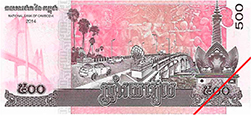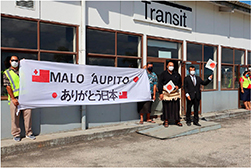Introduction: Significance of Japan’s International Cooperation
Japan has achieved reconstruction and economic growth after the war with assistance from developed countries and international organizations at the time, and has provided various support to a total of 190 countries and regions. Japan’s total Official Development Assistance (ODA) in 2021 ranked third following the United States and Germany, which shows that Japan plays an important role as a responsible country in the international community.
As we see from the impact of the spread of COVID-19 and the situation in Ukraine, a crisis that occurs somewhere in the world is by no means “someone else’s problem” for any country or region in the world. The economies of Asia and Japan are closely linked to each other, and mutual support between Asia and Japan is essential for mutual development. World peace and economic and social stability and prosperity are also important to Japan, which depends on imports for much of its energy and food from overseas. To contain COVID-19, and prepare for future pandemics, helping to strengthen medical systems in developing countries will lead to reducing the risk of infection in Japan and improving the environment for Japanese companies to expand their businesses.
Over 65 years of development cooperation have greatly contributed to building amicable bilateral relations with developing countries and to their growing trust in Japan in the international arena. As an expression of their appreciation to and trust in Japan, some developing countries have adopted the results of Japan’s cooperation in the design of their own banknotes and postage stamps. At the time of the Great East Japan Earthquake and other recent disasters, Japan received many messages of sympathy and support from countries around the world, including developing countries. Moreover, Japan has received tremendous support from countries around the world, including developing countries, in international elections, as evidenced by the fact that Japan has been elected as a non-permanent member of the UN Security Council 12 times, the most of any UN member state. These are the fruits of diplomatic efforts, including the strategic use of ODA and can be said to demonstrate the high level of trust and expectation that the international community has toward Japan. In an age of competition among nations, where uncertainty is increasing due to changes in the balance of power, it becomes even more important to strengthen relationships with countries, including developing countries, in order to uphold the international order based on the rule of law.
As globalization continues, an increasing number of Japanese companies are expanding their operations overseas. However, it is also true that there are challenges to business development in developing countries, such as underdeveloped infrastructure, lack of technical personnel, and opaque tax and legal systems. ODA is and shall continue to be utilized to support the business development of Japanese companies in developing countries by helping to solve such issues, conducting surveys and verification projects for business start-ups, and promoting the use of Japanese technology.
As the international community becomes increasingly interdependent, global issues that cannot be solved by the efforts of a single country are becoming more serious and complex. Japan shall continue to utilize ODA in an appropriate and transparent manner, and provide more strategic and effective development cooperation in partnership with various stakeholders around the world, with the aim of resolving global issues so that such efforts lead to the enhancement of Japan’s peace, security, and prosperity.

Cambodia’s two Mekong bridges built with the cooperation of Japan, known as the “Kizuna Bridge” and “Tsubasa Bridge,” respectively, and used in banknote designs

Prime Minister Hu’akavameiliku (center) welcoming the Japan’s Self-Defense Forces airplane arriving at the airport in Tonga carrying emergency relief goods in response to the damage caused by the volcanic eruption (January 2022)

Kenya’s largest geothermal power plant construction project supported by Japan with yen loans. Most of the turbines for power generation are made in Japan, and delivered by Japanese companies. (Photo: Marubeni Corporation)
